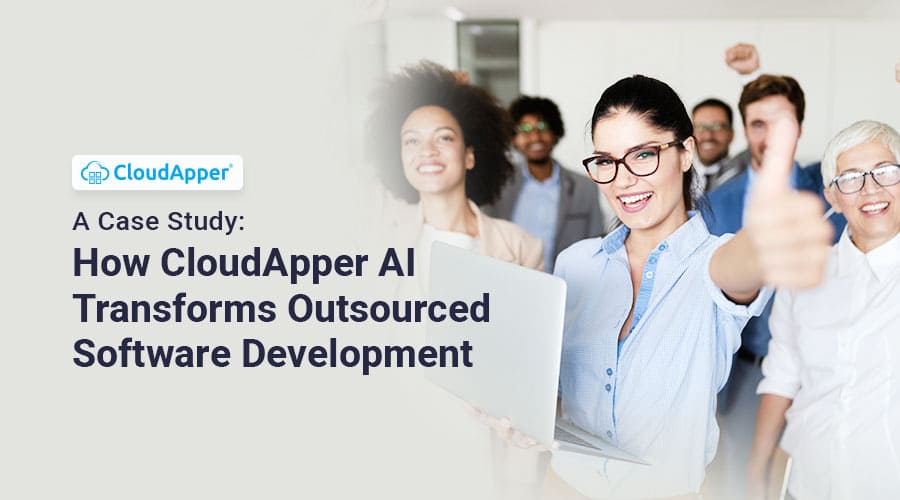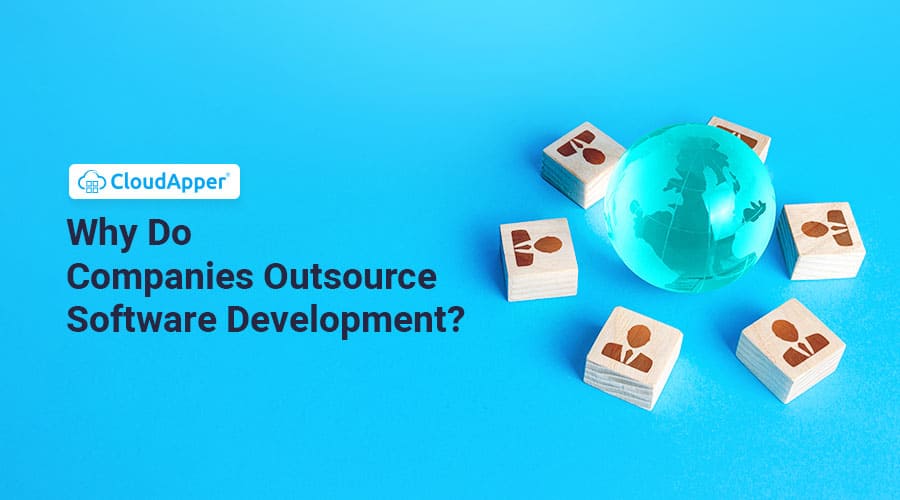Why do companies outsource software development? It provides access to global talent, cost savings, faster time to market, and allows companies to focus on their core business. CloudApper AI offers a transformative solution, simplifying development and achieving exceptional success without heavy coding.
Table of Contents
Companies in today’s changing business world are continuously looking for new and cost-effective ways to build software solutions effectively. This motivation has resulted in software development outsourcing being a popular technique all around the world. In this article, we will investigate the reasons for outsourcing software development, investigate various outsourcing models, discuss when to outsource, examine the costs involved, highlight important factors to consider, and propose CloudApper AI as a more efficient and dependable solution for software development.
Why Do Organizations Outsource Software Development?
Access to Global Talent Pool
By outsourcing software development, businesses have access to a big global talent pool. Businesses have access to seasoned developers from across the world by cooperating with external service providers, ensuring their projects receive top-tier expertise.
Cost Savings
Outsourcing reduces the need for infrastructure setup, recruiting and training expenditures, as well as the continuous operating costs involved with keeping an in-house development team. Companies may dramatically cut software development costs by exploiting cost-effective labor markets.
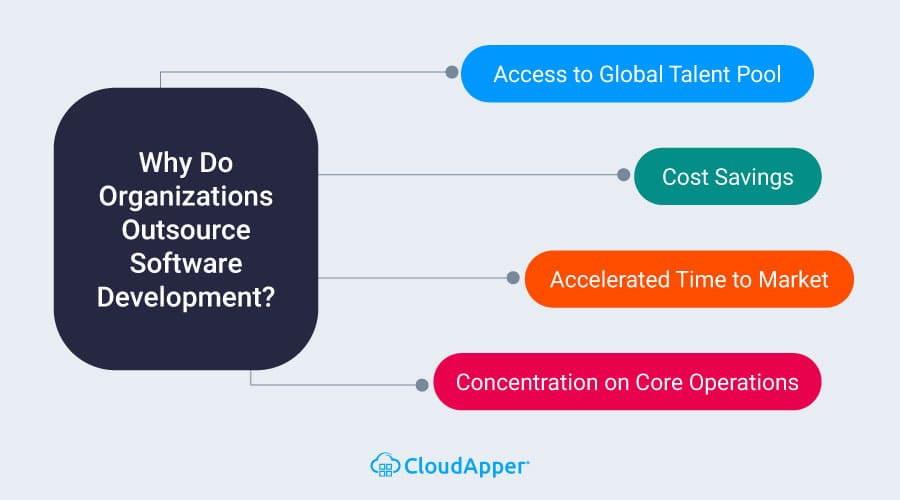
Accelerated Time to Market
By outsourcing software development to skilled service providers, businesses may expedite the development process and achieve a quicker time-to-market for their products and services. Dedicated teams who work around the clock guarantee that projects are completed on time.
Concentration on Core Operations
By outsourcing software development, firms may focus on their core capabilities and strategic ambitions. Companies may devote more time and resources to initiatives like client acquisition and overall business expansion by delegating development chores to specialists.
Models of Software Development Outsourcing
Companies can pick from a variety of outsourcing models, including:
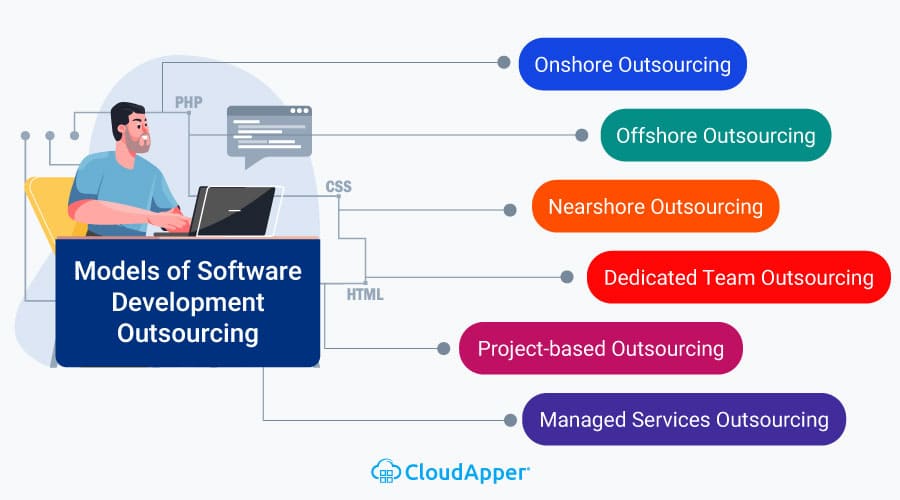
Onshore Outsourcing
Delegating software development to a business or team in the same nation gives closeness, cultural familiarity, and improved communication, however at a possibly higher cost.
Offshore Outsourcing
Outsourcing to a firm or team in another nation saves money and gives you access to a global talent pool, but it can be difficult due to language hurdles, time zone variations, and cultural subtleties.
Nearshore Outsourcing
Outsourcing software development to a neighboring or adjacent nation offers benefits like geographical closeness, similar time zones, and less cultural differences.
Dedicated Team Outsourcing
Employing a specialized team of software developers from an outsourcing business provides flexibility, scalability, and improved control over project specs and goals.
Project-Based Outsourcing
Companies may offload the full project life cycle, from requirements gathering through development, testing, and delivery, by outsourcing discrete software development projects to external teams or organizations.
Managed Services Outsourcing
Outsourcing full software system administration and maintenance to a third party includes activities such as system monitoring, software upgrades, issue resolution, infrastructure management, and technical support.
When Is It Appropriate to Outsource Software Development?
When a company considers outsourcing software development, it should do so because:
- They lack in-house skills or resources to complete a certain job.
- The project has a short timeline and requires quick scalability.
- Cost cutting is a top focus.
- It is vital to have access to specialist skills and information.
- They intend to concentrate on basic company operations as well as strategic projects.
How Much Does Outsourcing Software Development Cost?
The cost of outsourcing software development is determined by factors such as project complexity, scope, length, outsourcing type used, and service provider location. While outsourcing might save money, it is important to examine not only the initial project cost but also long-term value, quality, and support.
Considerations Before Outsourcing Software Development:
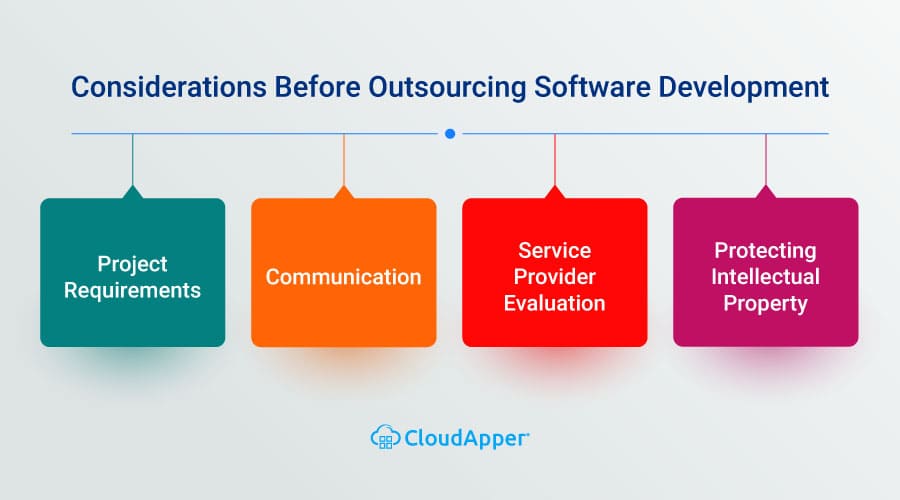
Project Requirements
Project specs, goals, and expected deliverables should all be well defined.
Communication
Establish appropriate routes and strategies for continuous contact with the outsourced team.
Service Provider Evaluation
Conduct extensive research to choose a trustworthy and dependable outsourcing partner with a track record of success.
Protecting Intellectual Property
Ensure that suitable legal agreements and security mechanisms are in place to protect sensitive information and intellectual property.
Is Outsourcing Software Development a Good Idea?
Many businesses can benefit from outsourcing software development. However, it is critical to analyze possible pain areas and investigate possible solutions. CloudApper AI, a transformational platform that revolutionizes software development, is one such solution.
CloudApper AI for Custom Software Development
CloudApper AI helps organizations to efficiently build apps without writing a single line of code. Companies may rely on creative-minded employees who have mastered the usage of CloudApper AI for software development if they have a team of solution specialists educated on the AI platform. This method simplifies development, boosts efficiency, and removes the need for traditional software engineers.
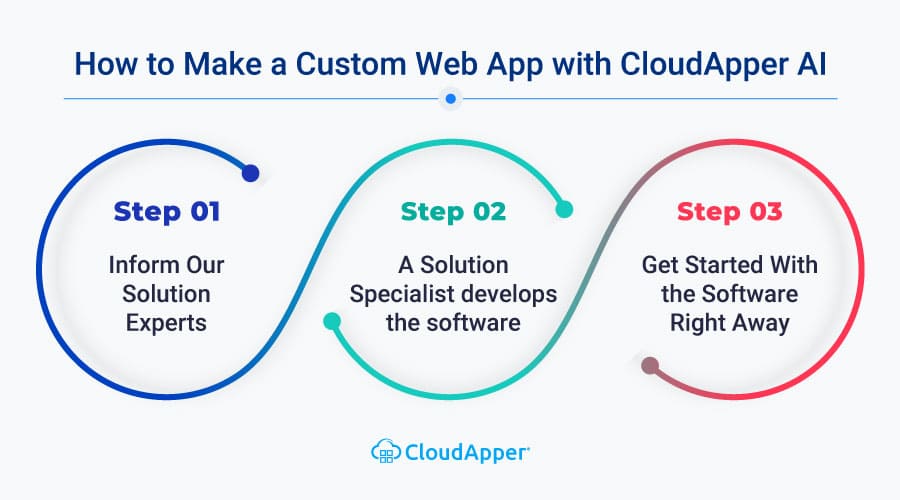
Conclusion
Outsourcing software development has various benefits, including access to global talent, cost savings, faster time to market, and the freedom to focus on core business. Companies should carefully examine project needs, select the right outsourcing model, and guarantee good communication and intellectual property protection when contemplating outsourcing. Furthermore, CloudApper AI offers a game-changing solution for software development, delivering efficiency, dependability, and automation without the need for heavy coding. With CloudApper AI, embrace the future of software development and achieve exceptional success in the digital arena.
What is CloudApper AI Platform?
CloudApper AI is an advanced platform that enables organizations to integrate AI into their existing enterprise systems effortlessly, without the need for technical expertise, costly development, or upgrading the underlying infrastructure. By transforming legacy systems into AI-capable solutions, CloudApper allows companies to harness the power of Generative AI quickly and efficiently. This approach has been successfully implemented with leading systems like UKG, Workday, Oracle, Paradox, Amazon AWS Bedrock and can be applied across various industries, helping businesses enhance productivity, automate processes, and gain deeper insights without the usual complexities. With CloudApper AI, you can start experiencing the transformative benefits of AI today. Learn More
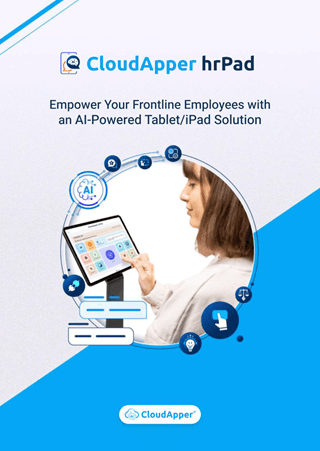
Brochure
CloudApper hrPad
Empower Frontline Employees with an AI-Powered Tablet/iPad Solution
Download Brochure
CloudApper AI Solutions for HR



- Works with








- and more.
Similar Posts

Is Outsourcing Software Development Really Cost-Effective?

Complete Guide: Hiring a Dedicated Software Development Team
